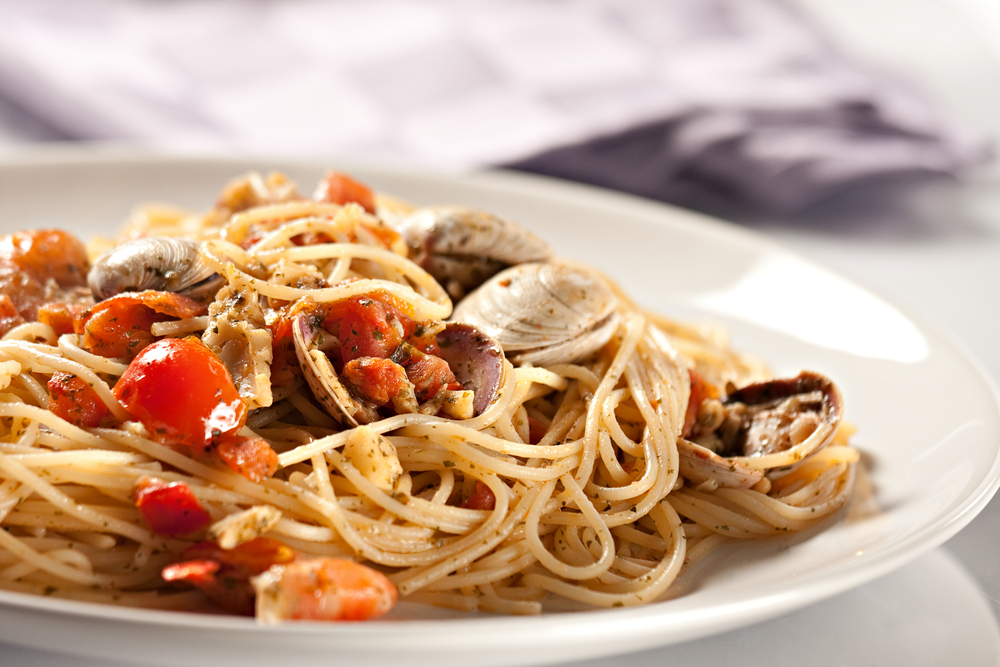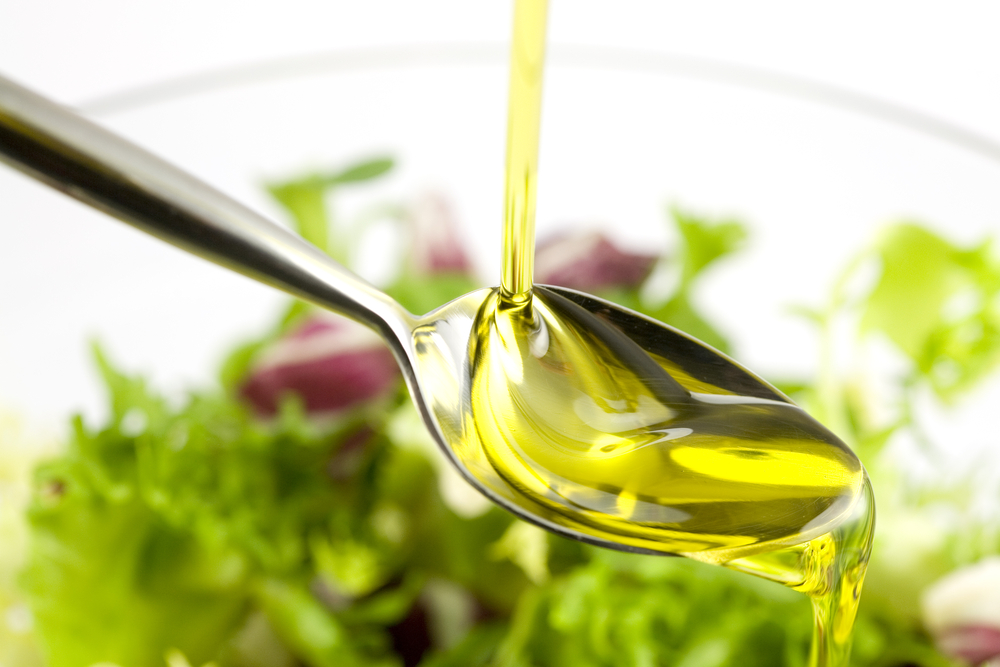The Mediterranean Diet for long life & good health

Switch to the Mediterranean Diet and live a longer and healthier life. It's one that perfectly suits a warm sunny climate with its salads, easy vegetable dishes, seafood and fresh fruit to finish. You'll find it easy to prepare and delicious to eat - and it never goes out of fashion.
Eating the Mediterranean Way
The Mediterranean Diet is widely regarded by nutritionists as one of the healthiest ways to eat. If you follow it, you are less likely to suffer from heart disease, high blood pressure and certain types of cancer. In short you can expect to live longer!
It's simply the traditional eating patterns of countries that have their border around the Mediterranean Sea - think of southern Italy, Greece, Spain, Portugal, southern France, Morocco and Turkey. All are different in flavours but have similar nutrition characteristics.
All these cuisines offer plenty of vegetables, fruit, fish and seafood, olive oil, garlic, fresh herbs and red wine, and include only small quantities of meat and dairy products with few desserts or processed foods.
Living longer
Research backs up the benefits of eating Med. When Greek people migrate to Australia, their rates of heart disease are low compared to Australians. But once that first generation of Greek Australians grows up, their heart disease rates rise to approach that of Australians. The reason? Traditional plant dishes of the Mediterranean diets such as dishes based on legumes are replaced with more kilojoule-dense foods and larger serves of meat, chicken, sweets, treats and fast foods.
The good health associated with Mediterranean diets cannot be attributed to a single food factor. Many foods play a role as well as a relaxed lifestyle (see below). Thanks to generous use of olive oil, the Mediterranean diet is high in monounsaturated fats and low in both saturated and polyunsaturated fats with their omega-6s.
Tomatoes, garlic, red wine and vegetables all add antioxidants, while seafood contributes plenty of omega-3s, a heart-friendly factor.
The only negative is their reliance on processed meats (cured, salted, smoked) such as salami, prosciutto and bresealo that form a key part of the cuisine. These tend to be high in salt and high in nitrites/nitrates that have been linked to cancer in later life.
Lifestyle factors
Research shows that exercise, stress reduction and strong social support all contribute to a reduced risk of heart disease.
- If you look at how people shop and cook in Italy or Greece, you'll notice that they shop at local markets for fresh ingredients and prepare meals from scratch. Pre-prepared or processed food items are not in their kitchen and the take-away food culture of Western society is nowhere to be seen.
- There's often more physical labour in their everyday living - it's not uncommon for walk or bicycle to the local village for provisions; dishes are mixed by hand, not with a processor; vegetables are picked daily from the veggie garden.
- Family and community ties are strong and traditionally families often come together for an unhurried midday meal. A mid-afternoon siesta follows, a relaxing way to unwind over the day.
6 key Mediterranean foods and why they're good for you
1. Garlic
Renowned for its wonderful taste, garlic has also been shown to keep the blood flowing freely, help reduce cholesterol and improve the ‘flexibility' of the blood vessels.
In its raw form, garlic has been shown to have mild anti-bacterial properties, stopping the growth of harmful bacteria and yeasts.
2. Tomatoes
Tomatoes are big - splashed through pasta, sliced onto pizza or sun-dried in salads. Besides being a good source of vitamin C, tomatoes also contain their red colouring lycopene, an antioxidant which fight against oxygen's damaging effect on body cells. Cooking tomatoes and adding oil increases the absorption of lycopene into the body.
3. Red wine
Red wine contains antioxidants known as polyphenols and resveratrol and can increase the ‘good' cholesterol. It is enjoyed regularly with meals but in moderation.
4. Fish and seafood

The thought of an Italian restaurant without its calamari, mussels or lemon sole is unimaginable. Fish and seafood dominate the Mediterranean diet and provide powerful omega-3 fats as well as protein and the minerals iodine and potassium.
Omega-3s are known to reduce the risk of heart disease, by lowering the amount of triglycerides (blood fats), thinning the blood, reducing blood pressure and preventing irregular heart beats (arrhythmia).
5. Pasta
When people think of pasta, the first thing that springs to mind is carbohydrate. The carbohydrate in pasta is low GI (slow digesting), helping to fill you up. Pasta is often thought to be "fattening", but it's the sauces served over the pasta that frequently provide more kilojoules than the pasta itself.
For a meal that is filling, without being fattening, top your fettuccini the Mediterranean way - with tomatoes or tomato sauce, capsicum, zucchini or other vegetables, chick peas, seafood and fresh herbs like basil or oregano. Forget the cream and butter.
6. Olive oil
Olive oil has over 70 per cent monounsaturated fat, amongst the highest of all the oils (only macadamia gets close). And if you buy extra-virgin cold-pressed oil, it will also give you natural antioxidants such as polyphenols and carotenoids as well as some vitamin E.

Extra-virgin olive oil comes from the first pressing of olives - it's low in acidity and reserved for salads and dressing cooked zucchini or other vegetables. Yes you can cook with it but I wouldn't overheat it for a long time.
Pure olive oil is usually a mix of a little of extra-virgin and refined olive oil and is sold in large tins. We used to save this one for cooking but you're still getting a refined, bleached and deodorised oil WITHOUT the benefits of extra-virgin. Don't use this one.



